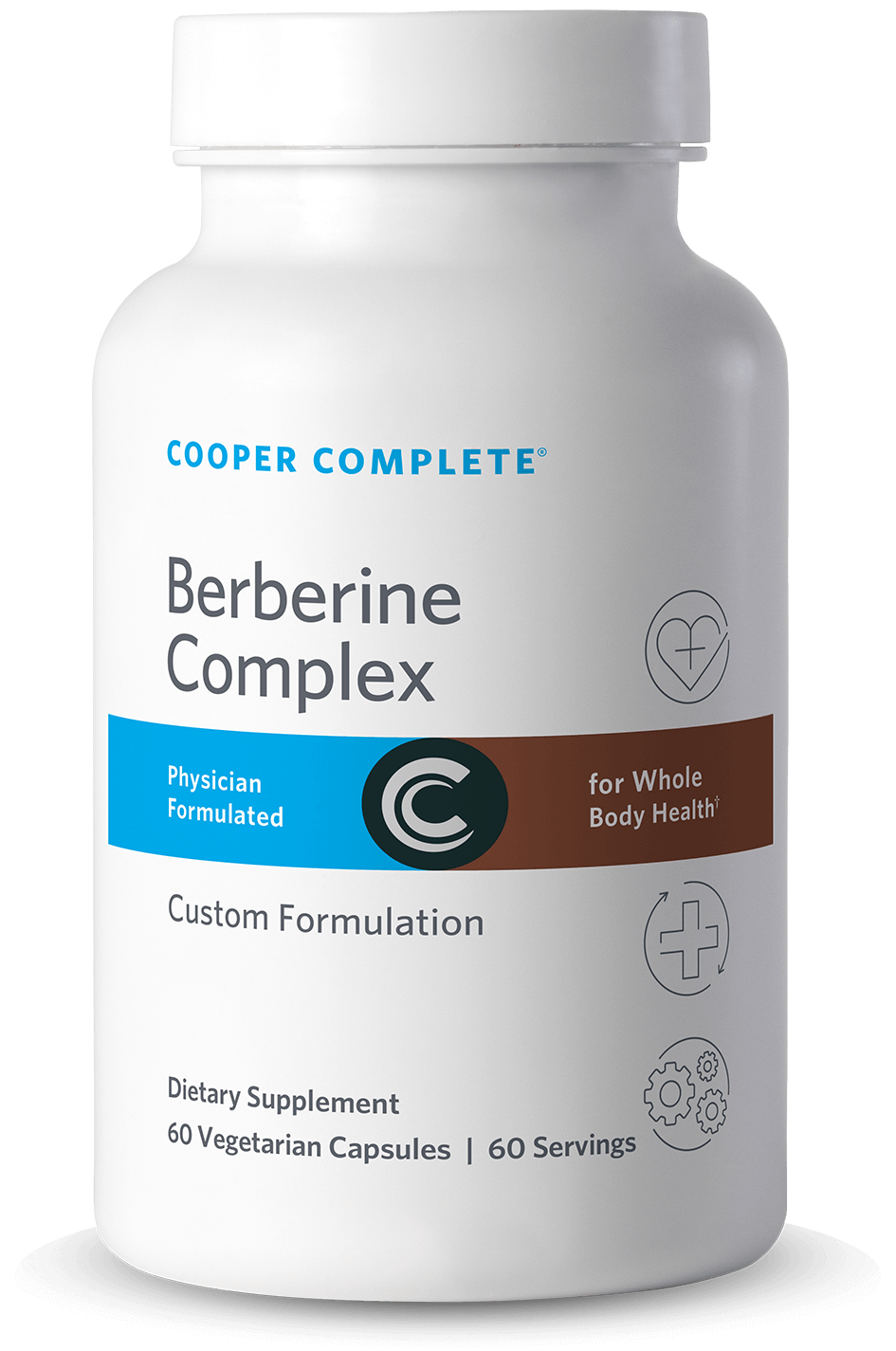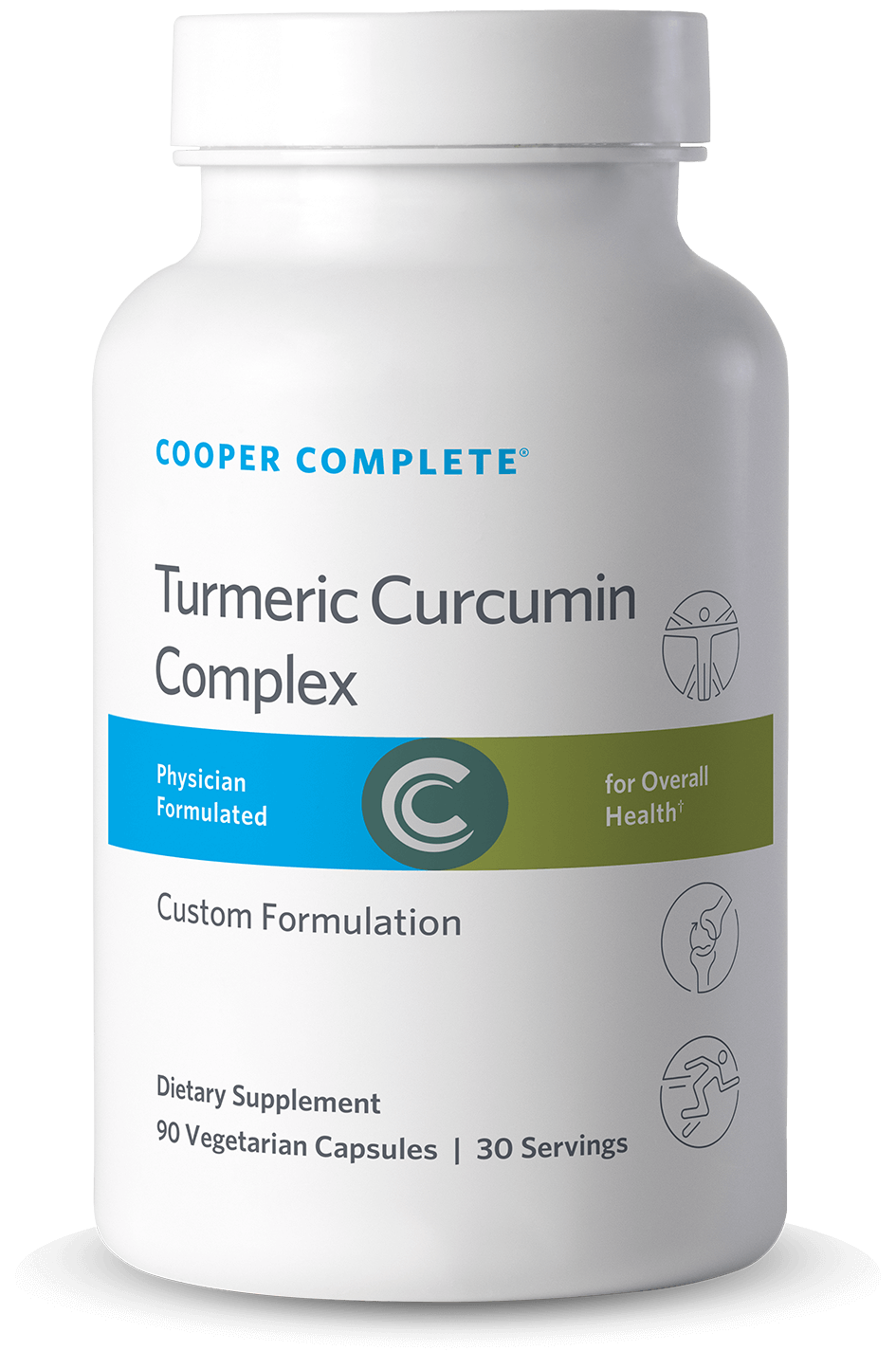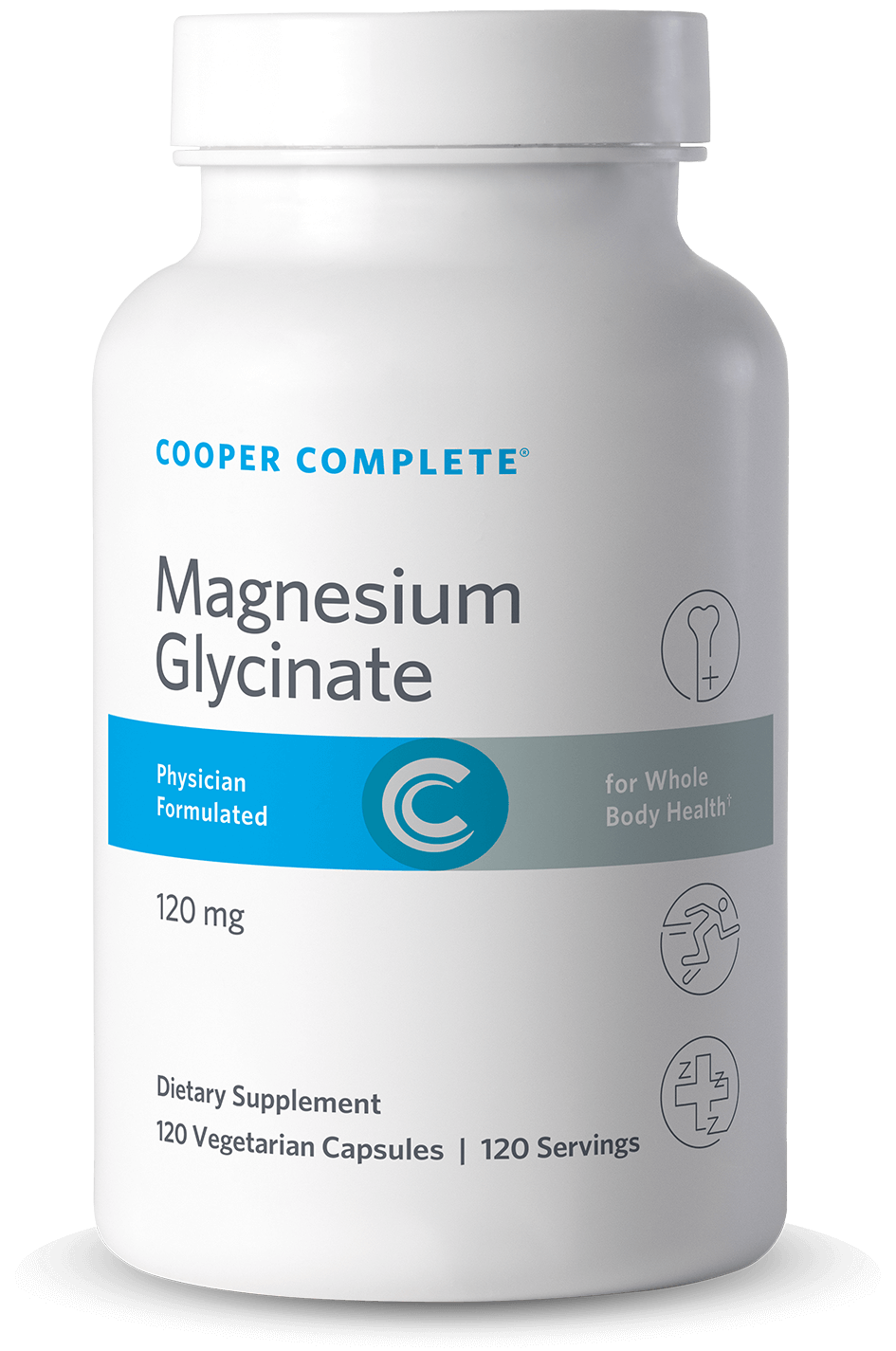Learn About PCOS and Supplements That May Help

Polycystic ovary syndrome (PCOS) is a common endocrine disorder affecting 6-12% of women in the United States ages 15-44. Caused by an imbalance of reproductive hormones, this disorder is a leading cause of infertility, can result in the development of cysts in the ovaries and produce uncomfortable side effects. While there is no cure for PCOS, practicing healthy lifestyle choices including proper sleep, exercise and consuming adequate nutrients through a healthy diet and supplementation can help reduce symptoms.

Berberine Complex Supplement
Berberine Complex Supplement contains berberine, alpha lipoic acid and vitamin C to support healthy glucose metabolism, lipid (LDL) cholesterol, and immune balance.†
$49.98 Add to cartCauses and Symptoms of Polycystic Ovary Syndrome (PCOS)
The name polycystic ovary syndrome describes the small cysts—fluid-filled sacs—that form in the ovaries. However, the presence of cysts isn’t always related to PCOS. Some women with PCOS may not develop cysts while others without PCOS may develop them. Women of all races and ethnicities are at risk of developing PCOS; however, some factors may increase the chance of developing this disorder including:
- If you are obese
- Waist circumference > 35 inches
- If your mother, sister or aunt has PCOS
- High levels of androgens (“male hormones”) can prevent ovaries from releasing an egg
- High levels of insulin (insulin resistance)
- Chronic, low-grade inflammation
Confirmation of two or more of these symptoms—irregular periods or no period at all, higher than normal levels of androgens or multiple small cysts on the ovaries—results in a medical diagnosis of PCOS. However, not all women who have PCOS will show all symptoms, in fact, some women will have no symptoms at all. In some cases, cysts can rupture and resolve themselves but in rare cases, laparoscopic surgery is needed to remove the cyst.
To be diagnosed with PCOS, your health care provider will discuss your medical history, including your genetics, and possible symptoms which may include:
- Irregular menstrual cycle
- Hirsutism (too much hair)
- Acne
- Thinning hair on scalp
- Weight gain (and/or difficulty losing weight)
- Darkening of skin
- Skin tags
Due to the symptoms of PCOS mimicking other health concerns, your physician may perform additional tests to confirm your diagnosis. An ultrasound can be used to capture images of the blood vessels, tissues and organs as well as to view the size of the ovaries and see if cysts are present. Blood tests can be used to determine androgen and hormone levels, blood glucose, cholesterol and triglyceride levels.
PCOS increases the risk of other serious health issues including diabetes, gestational diabetes, heart disease, high blood pressure, elevated LDL (“bad”) cholesterol, sleep apnea, stroke, depression and anxiety and endometrial hyperplasia. Symptoms and other potential health risks of PCOS can affect daily life but developing healthy lifestyle practices including maintaining a healthy weight and engaging in regular exercise can help relieve symptoms.
Supplements for Polycystic Ovary Syndrome (PCOS)
Although no supplements are available specifically to address PCOS, some supplements can aid in reducing the severity and uncomfortable symptoms.

Turmeric Curcumin Supplement
Contains 1000 mg of turmeric extract, which is standardized to contain 95% curcuminoids, and 10 mg of black pepper in 3 vegetarian capsules. Physician formulated to support a healthy inflammatory response.
$35.98 Add to cartBerberine, Turmeric and Zinc
Many women with PCOS have insulin resistance—a condition where the body’s cells do not respond normally to insulin. Insulin resistance is especially common in those who are overweight, have unhealthy eating habits, do not get enough physical activity and those with a family history of diabetes. Over time, insulin resistance can lead to type 2 diabetes. Berberine, turmeric and zinc may help reduce insulin resistance.
Research shows berberine can help manage diabetes, high cholesterol levels and high blood pressure. But berberine can also help regulate how the body uses blood sugar and reduce high testosterone levels. A 2020 study of berberine used as a supplement for women with PCOS showed an increase in fertility and live birth rates. The alpha lipoic acid and vitamin C found in Cooper Complete Berberine Complex supports healthy glucose metabolism, immune balance and lowers cholesterol.
Many women with PCOS experience inflammation. Turmeric supplements contain curcumin, an antioxidant that fights unstable atoms causing damage to the body, including inflammation. But besides reducing inflammation and improving skin health, a clinical trial from 2021 found that turmeric may help promote normal insulin sensitivity and a healthy inflammatory response in women with PCOS. Cooper Complete Turmeric Curcumin supports joint health and inflammation with 1000 mg curcumin extract, a natural anti-inflammatory.
Zinc is an essential nutrient for regulating cell growth, hormone release, immunological response and reproduction. In a review of 36 studies based on reproductive health, it was found that women with PCOS who supplemented with zinc experienced a positive effect on insulin resistance and lipid balance. Also, 20-30 mg of zinc supplementation in one to four daily doses taken before and during women’s menstrual cycles resulted in a reduced amount of menstrual pain. Cooper Complete offers three forms of zinc supplementation.
Vitamin B12
Many women take metformin—a medication used to treat type 2 diabetes—and 6-30% of patients taking metformin have developed a vitamin B12 deficiency. B12 aids in cell metabolism, nerve function and DNA production. A deficiency in B12 may lead to tiredness or weakness throughout the day. Taking vitamin B12 can restore normal energy levels and reduce overall tiredness while also aiding in mood regulation and offset the effects of metformin. Other B complex vitamins may also help manage homocysteine levels that may be high due to PCOS.
Cooper Complete Vitamin B12 Methylcobalamin contains the most active, absorbable form of vitamin B12 which can be beneficial.
Vitamin D
Many women (67-85%) suffering from PCOS also develop a vitamin D deficiency. A nutrient we receive from ultraviolet rays (UV) and naturally occurring in small amounts in some fish (including tuna and salmon), and in fortified dairy, juices and many other items and a hormone our bodies make, vitamin D is critical to overall health and protecting bone, immune and heart health. Having a vitamin D deficiency in addition to PCOS could result in a higher risk of ovulatory dysfunction and metabolic syndrome. Taking the recommended dose of 50 mcg (2000 IU) of vitamin D daily (found in all Cooper Complete multivitamins as well as in standalone vitamin D supplements) may reduce symptoms of PCOS including insulin resistance, menstrual irregularities, infertility and the elevated risk of cardiovascular disease.

120 mg Magnesium Glycinate Supplement
Chelated magnesium glycinate (also known as magnesium bis-glycinate) is well absorbed without significant laxative effects.
$24.98 Add to cartMagnesium and Melatonin
When most people think of melatonin, they think of the vitamin promoting better sleep. But a study on supplementation and PCOS found co-supplementation of melatonin and magnesium not only improves sleep quality but also significantly reduces insulin levels/insulin resistance, cholesterol and testosterone levels. A few studies have been conducted on the effect of melatonin and PCOS symptoms but the growing research shows promising results.
Cooper Complete Magnesium Glycinate is well-absorbed and helps support bone health, energy production and heart health. Co-supplementation with Cooper Complete Melatonin Quick Release can improve sleep and reduce insulin resistance.
Research on supplements for PCOS is ongoing and constantly changing. While there currently is no cure for PCOS, creating healthy lifestyle habits including exercising regularly, eating a healthy diet and utilizing proper supplementation can reduce symptoms. Your health care provider understands your health profile best, so talk with your physician about which vitamins may be right for you.
Cooper Complete September 8, 2022